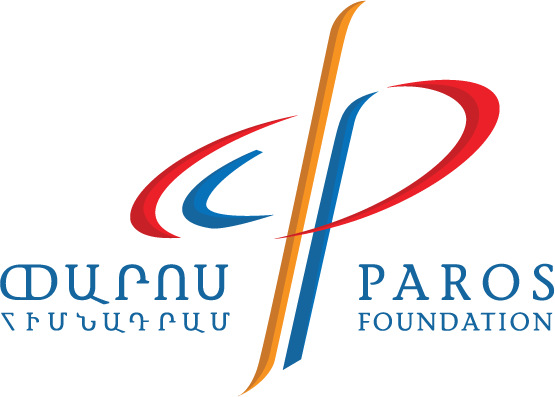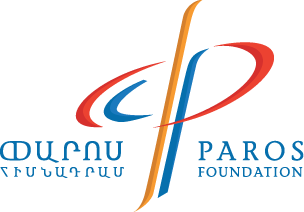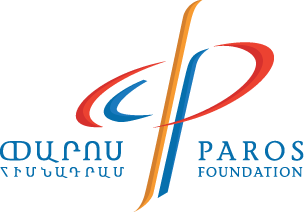
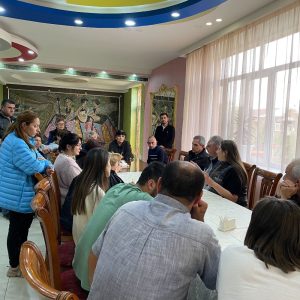
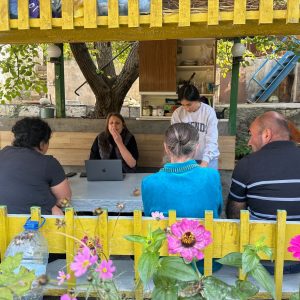
Our team has visited the communities of Kapan and Kajaran in the South, Gyumri, Berd, Vardenis and Meds Masrik (East and North East of Lake Sevan). In each of these communities, we visited with local leaders and refugee families to discuss both short-term and long-term needs. What we have learned is the following:
1. The Armenian Government (with support from international donor countries like USA, France, etc. (I suspect), is providing each person displaced from Artsakh a one-time 100,000 dram (about $250) stipend. In addition, as these families move from shelters, they are providing six months of housing assistance amounting to $120 per person in the family. We have confirmation that both of these amounts are being paid out.
2. International relief organizations are distributing food, clothing, and cots. In addition, both local and diaspora-based organizations are doing some of the same. Those people remaining in hotels and/or public shelters are being fully taken care of as well.
3. Most of the children of these families are getting enrolled in school and are now attending regularly.
4. Debi Arach Children’s Center has opened its doors to all Artsakh children in Gyumri. Debi Arach Director, Aida Khachatryan, and the center’s psychologist are visiting local schools to present the programs and encourage the Artsakh children to attend and receive the support they need. In addition, we have gathered resumes from teachers from Artsakh that we have met with to try and fill a teaching position we have open at Debi Arach.
5. We have accepted at least three Artsakh women into Hianali Beauty Center’s training program, a social enterprise launched and supported by the Gary & Linda Assarian Vocational Training Program. We are also actively trying to hire one hairdresser and a cosmetologist.
Given the reality on the ground in these communities, our short-term plan for humanitarian assistance at this moment is three-fold:
1. Firewood For Heating And Cooking – In the communities of Gyumri and especially Vardenis/Meds Masrik, winter is fierce. The head of the local community urged us to help with firewood. As of today, we have supplied 20 families with one month’s supply of firewood. This will continue based on funding and need.
2. Winter Boots – Most of the families we met with in Gyumri and Vardenis/Meds Masrik told us they only brought essentials and most did not bring or even have appropriate winter clothing. Zadur Shoes, a local Armenian brand, that was started as a partnership with one of our SERVICE Armenia dads and his cousin, are manufacturing and donating 500 pairs of women’s boots. These boots are really excellent quality. We have started the distribution of these boots to women and girls in Gyumri and Vardenis/Meds Masrik. This process is a bit slow as they are size-specific, but we will use Debi Arach as the distribution point in Gyumri and our local contact on the ground in Meds Masrik for the entire Vardenis area. The company is going to also manufacture children’s sizes and we are working to line up donors to help fund winter boots for children in these communities as well.
3. Clothing – We have a variety of new clothing, hats and scarfs and will be distributing these to needy Artsakh families whenever we visit. We have also received a bunch of gently used adult and kid clothing and will be distributing that as well where appropriate (once our team has gone through it all.)
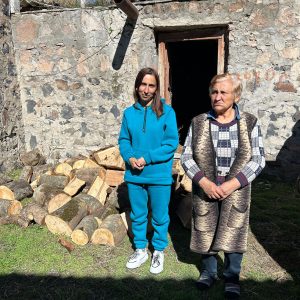
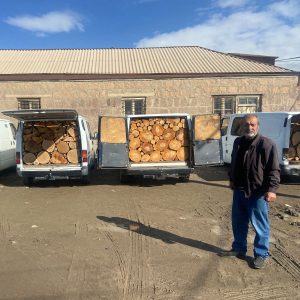
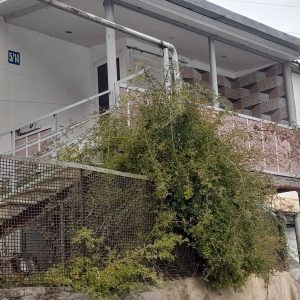
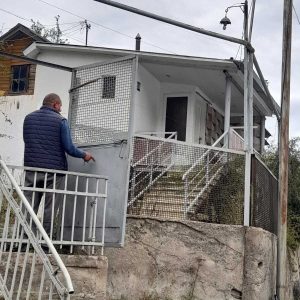
– Long Term Housing Plan –
Our long-term housing plan is absolutely essential to be launched asap. The major problem facing these families is their long-term housing solutions. If they have a place to live and some kind of income, they will stay in Armenia. Otherwise, the outflow from Armenia will continue. Already, we are seeing families from Artsakh applying to leave the country.
We have viewed both homes and buildings in all of the communities we have visited. Our team is already in the process of purchasing three homes in the Vardenis consolidated community village of Geghamasar. This community has fertile land and we are in the process of purchasing now. These homes are generally in good shape, but need renovations prior to them being handed off to families from Artsakh. We are purchasing these homes (all of them have land for a family farm and a barn) for an average of $7,000. The renovation to make these abandoned homes livable including an inside bathroom and heating system will bring the finish price of these homes to about $23,000. This number is approximate and will vary based on the size of the homes. All three of these homes are suitable for 6 to 8 or 9 people. This finished price does not include appliances or furniture. I am hoping we can partner with the local community or other organizations for these items.
The other community in which we are preparing to purchase homes is the Kapan community of Kajaran. This community has homes in an apartment building that need to be completely rebuilt. Our initial estimates saw three homes that we can complete for approximately $24,000 per home including the purchase price (which we are still negotiating). The local community leader is ready to provide each family with a plot of land in the community to farm and is ready to help them find employment also.
In the consolidated community of Berd, we also found three suitable homes, but we will not begin working in this region until we have secured additional funding.
To date we have raised about $220,000. We will purchase, renovate and move as many families into homes as we can raise funds to support. We have already lined up construction crews to begin the renovation work on the homes in Geghamasar. In addition, our team has already begun interviewing families from Artsakh to start the identification process so as soon as the homes are ready, we can move them in.
Ultimately, once we have identified the family and have the home ready, we will follow our established process of gifting them 90% of the home and retaining a 10% ownership in the home for 10 years to ensure they are not tempted to sell it and move out of the country. This model has been very successful in both Gyumri with our domik families and with our 2020 Artsakh families that we have moved into homes.
Any support you would consider making would be greatly appreciated. Our brothers and sisters need us now more than ever. If you have any questions, please ask.
Thank You,
Peter Abajian
Executive Director
